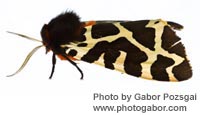Gaining diversity in the immune system
The great diversity of the immune system can partly be achieved by gene regulation via alternative splicing.
The immune system requires both a great diversity of functional proteins and the ability of individual cells to adapt and respond to rapidly changing conditions in a quick and precise way. To overcome these problems, the immune system uses alternative splicing as a mechanism of gene regulation. Numerous immunological relevant genes have been implicated to undergo alternative splicing.
Lymphocytes carry different proteins on their surfaces, clusters of differentiation (CD) among them. CD45, an essential component for the function of lymphocytes (more precisely B-cells and T-cells) can be present in various possible forms.
One part of the immune response against unfamiliar elements (molecules that are not derived from the organism itself) is carried out by lymphocytes. T-cells and B-cells are both lymphocytes. The surface of lymphocytes is coated with vast numbers of proteins called clusters of differentiation (CD). Due to the large number of possible forms (about 1018 different proteins) a high variability in surface patterns can be achieved such that an interaction with a foreign element will occur to trigger the immune response. Furthermore, proteins are present in random compositions on the cells.
Alternative splicing of CD45
B-cells and T-cells for example carry - in addition to other clusters of differentiation and non-CD molecules – a glycoprotein called CD45. Different versions of this protein are derived from one pre-mRNA that is alternatively spliced. Its presence is essential for the development and function of human lymphocytes. Therefore, individuals lacking CD45 are severely immunodeficient. In humans the pre-mRNA encoding this protein can be alternatively spliced to generate up to eight different proteins; the expression pattern of alternatively spliced CD45 variations is associated with distinct functions. Disruption of this function may cause auto immunological disease, immunodeficiency and cancer.
CD45 pre-mRNA is alternatively spliced and the resulting distinct proteins can be further glycosylated to give many various protein products. Production of the different forms depends on the activation state of the lymphocyte and also on the cell type (B cells versus T cells). Alternative splicing of CD45 also depends on the status of the T-cell. Naïve T-cells, which have not yet come in contact with an antigen show different splicing patterns compared to activated T-cells. In particular, exon 4 of CD45 is important as single mutations in exon 4 of CD45 have been suggested to be associated with Multiple Sclerosis, Autoimmune Hepatitis and HIV infections in humans.






